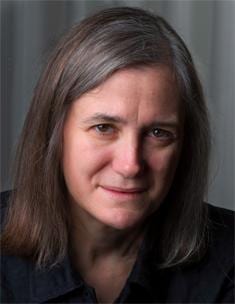An outspoken US journalist is questioning what freedom of the press and speech mean in Canada after she was detained at the border near Vancouver this week.
Amy Goodman says Canadian border agents didn’t believe she was visiting Canada to promote her new book and discuss health care, global warming, the global economic meltdown and the wars in Afghanistan and Iraq.
Rather, she says, their focus was on what she might say about the 2010 Winter Olympics.
“I was completely shocked,” she says.
Goodman was held for 90 minutes at the border as agents grilled her with questions. Goodman says she does not know if she was red-flagged for a search at the border.
Goodman’s detention and Olympic-related questioning comes as controversy continues to swirl around what demonstrations will be allowed during the Games.
A city bylaw restricts protests to police-controlled “safe assembly areas.” It also bans newspaper boxes such as Xtra West’s from areas around Olympic venues. Parts of that bylaw may be rescinded next month after public outcries.
As a result of the detention, Goodman was late for a talk at Vancouver Public Library.
Check it out here.
Goodman, host of an American public radio show called Democracy Now, says a border official asked if she intended to talk about the Olympics.
“I said, ‘Actually I hadn’t thought about talking about the Olympics here,'” Goodman tells Xtra. “He was incredulous. He clearly didn’t believe me.”
She says her car was searched, books and documents rifled through and a colleague’s computers examined.
She said such searches require warrants in the US.
“I don’t think it’s a good thing for Canada to adopt the worst policies of Homeland Security in the US,” she says. “I felt personally violated, professionally violated.”
Further, she says, the search of her and her colleagues’ possessions violated their right to protect her journalistic sources.
Further, she adds, such tactics put a chill into journalists and prevents them from being able to do their jobs without fear.
“Journalism is so important to the functioning of democracy,” she says.
Goodman says she was going to Vancouver to promote her new book, Breaking the Sound Barrier, and to discuss how Canadian Tommy Douglas pioneered Medicare.
Before being allowed into Canada, Goodman was photographed and told to be out of the country within two days.
“I wasn’t aware I had to have a visa,” she says.
The Canada Border Services Agency website says people may be denied entry if they are engaged in subversion or terrorism; have committed war crimes; have serious criminal records; are involved in organized crime or in transnational crimes such as people smuggling, trafficking in people or money laundering; are a health risk; or cannot provide for themselves financially.
Goodman says she does not fit those categories.
Canada Border Services Agency spokesperson Faith St John said she cannot comment on specific cases.
She says anyone entering the country may have their vehicles and goods examined and be referred for a secondary inspection.
“Any referral should not be seen as an accusation of wrongdoing,” St John says.
St John says a person may be checked if they have a record of non-compliance at the border, a criminal record or are behaving suspiciously.
Janine Fuller is the manager of Vancouver’s Little Sister’s bookstore. She’s no stranger to heavy-handed tactics at the hands of Customs officials after fighting as far as the Supreme Court of Canada over book seizures.
She says the detaining of Goodman is another call for Canadians to be vigilant about free speech issues around the Olympics.
“What ridiculous waste of taxpayers’ money,” Fuller says of the detention. “I think they’re preparing us for what’s to come.”
“What does that say about Canada as a society?” Fuller asks.
Further, she asks, “What would Olympic athletes think of this being done in their name?”

 Why you can trust Xtra
Why you can trust Xtra


